#Mark Millar
Text

Two Scottish comic book writers/creators Grant Morrison and Mark Millar appeared in a comic book where The Simpsons visited Scotland and the two fight over whose X-Men title is selling the most.
249 notes
·
View notes
Text

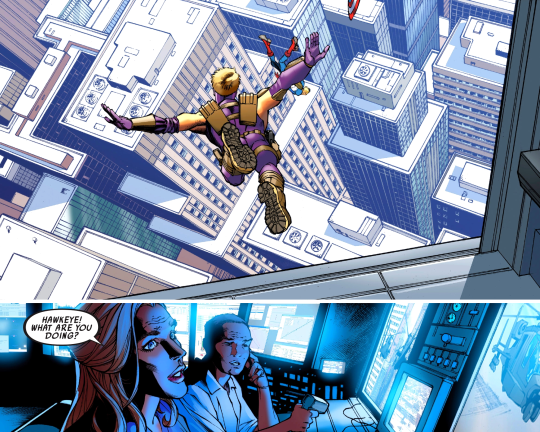
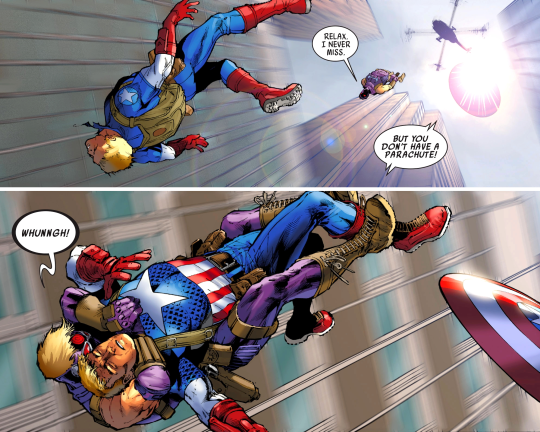
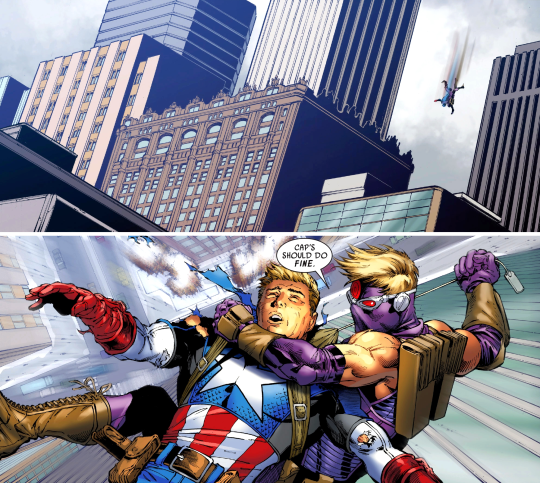



HAWKEYE - "Relax. I never miss."
Ultimate Avengers (2009) #1
by Mark Millar, Carlos Pacheco & Danny Miki
#Hawkeye#Clint Barton#Ultimate Hawkeye#Captain America#Steve Rogers#Red Skull#Ultimate Universe#Ultimate Avengers#Mark Millar#Carlos Pacheco#Danny Miki#Marvel#Comics
113 notes
·
View notes
Text
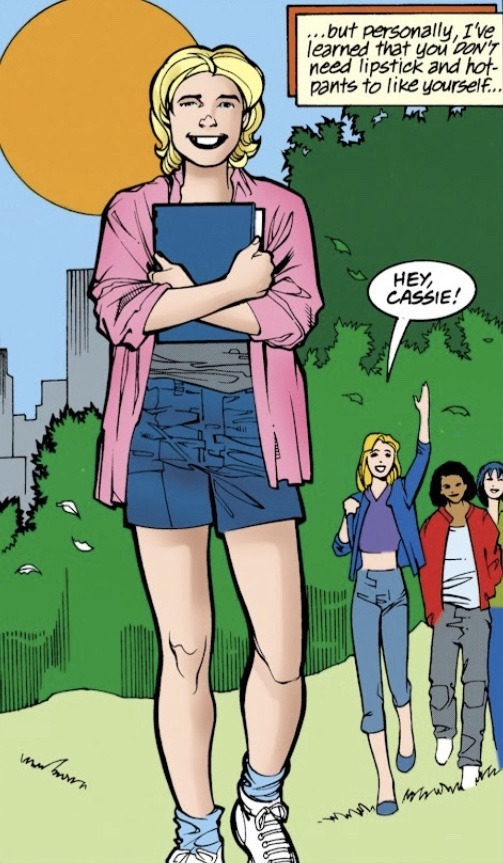
#cassie sandsmark#wonder girl#daily cassie sandsmark#georges jeanty#mark millar#rick taylor#wonder woman vol. 2#my deepest longest and most dramatic sigh ever
143 notes
·
View notes
Text
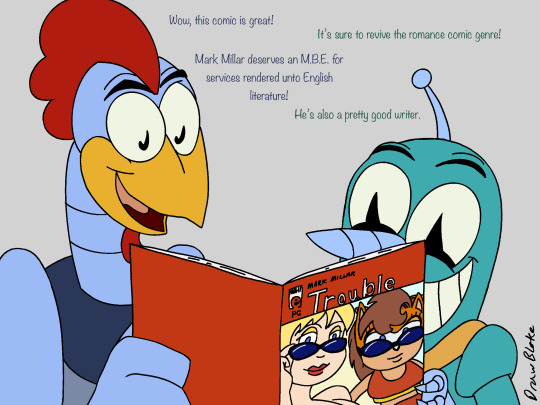
Scratch and Grounder getting into Trouble... the Mark Millar romance comic classic that broke new ground and a few sane minds.
For /co/
#AoStH#Adventures of Sonic the Hedgehog#Fanart#Scratch and Grounder#Scratch#Grounder#Sonic the Hedgehog#Mark Millar#Trouble#co request#Madonna (Sonic)#Tiara Boobowski
56 notes
·
View notes
Text
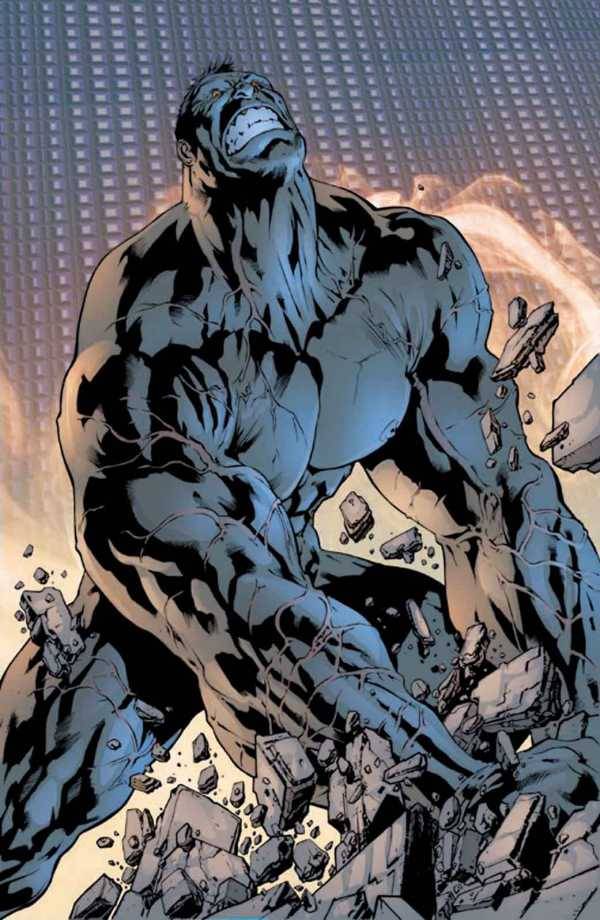
The Ultimates 5 (2002) by Mark Millar & Bryan Hitch
Cover: Bryan Hitch
60 notes
·
View notes
Text
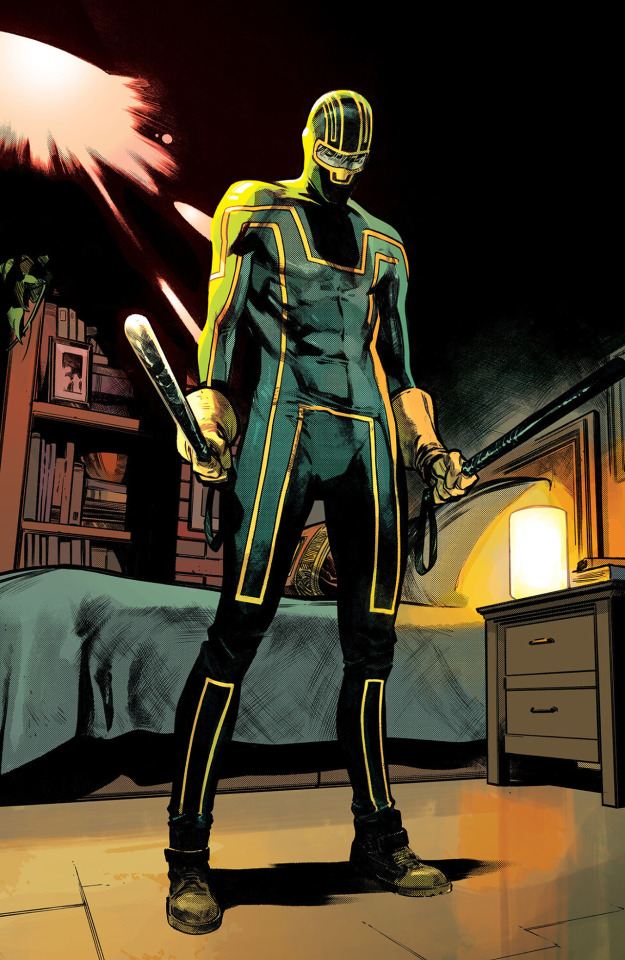
Big Game #3
84 notes
·
View notes
Text
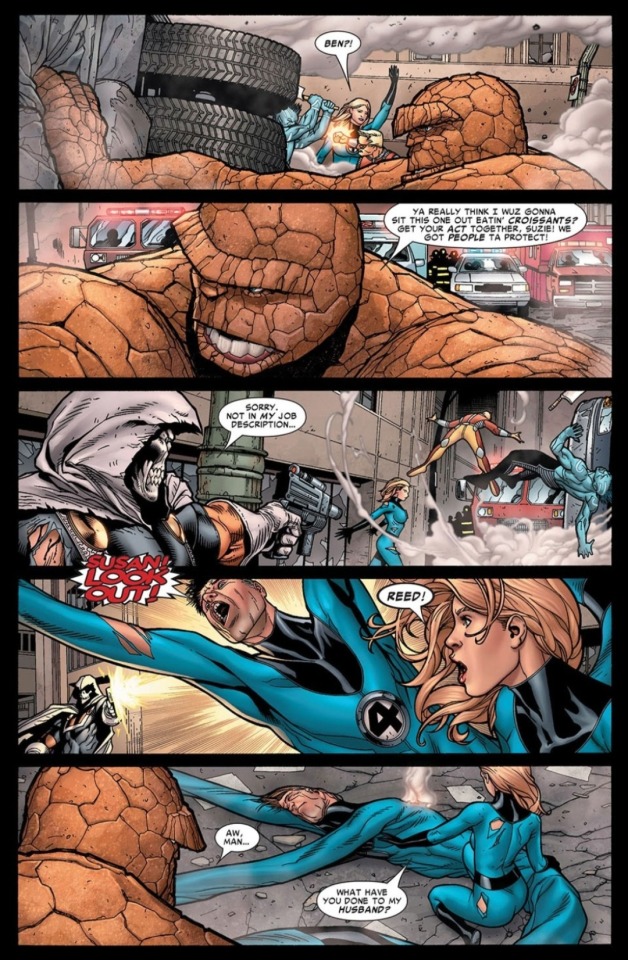

Top 10 mistakes made in the Marvel Universe.
Civil War (2006) #7
#sue storm#invisible woman#reed richards#mister fantastic#taskmaster#marvel comics#civil war#616 reed richards#616 sue storm#mark millar#reedsue#fantastic four
82 notes
·
View notes
Text
It's a well worn topic at this point but the imminent release of The Marvels has me thinking about how militaristic the Marvel Cinematic Universe is, with Monica Rambeau aka Photon, a habour patrol member in the comics, reimagined as a captain in the US Air Force.
She follows Hawkeye, who was changed from an argumentative former circus performer with a heart of gold (a character so staunchly against lethal force he once revoked his own wife's Avengers membership because she sort of, maybe, subconsciously allowed a villain to fall to his death) into a hard-nosed black ops assassin.
Sam Wilson/ Falcon made his celluloid debut as an army man with twin submachine guns attached to his wrists. It’s a far cry from his print counterpart’s introduction as a social worker by day who uses his skill at falconry to protect his neighbourhood.
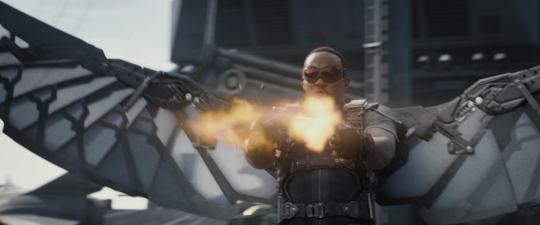
If we allow the argument that modern cinema goers are accustomed to a sprinkling of realism to make their superheroes palatable (and it’s a strange argument really- why should realism be a desirable quality in summer blockbuster escapism?) then what actually constitutes “realism”.
Sure, a man who learnt uncanny skill with a bow and arrow growing up with a travelling show couldn’t possibly hold his own alongside Hulk or Thor in the real world (and, yes, there isn’t a Hulk or Thor in the real world; as I say, this is a strange argument), but if he learned those exact same skills in some kind of military context then that somehow passes the bar for realism? The sinister upshot is that these children’s heroes become more warlike just as, globally, they reach more children than ever before.
Increasing the realism of superhero stories only serves to make them problematic. DC Comics' Batman, who is the frequently subjected to “realistic” treatments, is the prime example. If, in real life, a billionaire tooled himself up with the best weapons and body armour money can buy and began dispensing violent “justice” with no accountability, then of course that wouldn’t be a good thing. If they wore a costume with pointy ears and started calling themselves “Batman” then of course we would question their sanity. But Batman isn’t real; it’s a story. Nobody thinks The Muppet Show advocates animal cruelty. Quite the opposite, if anything. ("Not unless they're watching it", as Waldolf once heckled) Yet if a filmmaker decides they’re going to make a “grounded and realistic” remake where Fozzy is played by a real live bear wearing a pork pie hat and spotty necktie, then that's a whole other story. Suspend your disbelief and superheroes are less like the police or army and more akin to volunteers and activists, doing what they can with what they have to improve the lives of those around them. Their actions take the form of crime fighting only because that’s what makes for exciting colourful adventure stories for children.
In the MCU, even Marvel’s poster boy, Spider-Man (another champion of non-lethal solutions, known for his compassion even to his enemies and who possesses an enduring appeal to young children) is given a literal sheen of the military-industrial complex in the form of “Stark Tech” armour, replete with military grade strike drones. Tony Stark even thought to equip his 15 year old protégé-cum-child soldier with an “Instant Kill Mode”. In a moment played for laughs in Spider-Man: Homecoming, Spider-Man rejects his on-board AI's attempt to activate this feature but seems untroubled that such an option exists and, indeed, come Avengers: Infinity War, he voluntarily deploys it. It’s not clear if Spidey actually does kill any of his alien adversaries, but it seems reasonable to assume that one doesn’t say “Activate Instant Kill Mode” without the intention of ending lives. Fans are expected to smile or applaud as Spider-Man says these words, recognising the call-back to Homecoming, rather than find it a gross misrepresentation of Marvel’s most beloved character or an alarming depiction of a children’s favourite.
The MCU Avengers as a whole are a US government “initiative “. The reluctant superheroes need to be cajoled into putting their differences aside for the greater good by army top brass Nick Fury. In a tweak from the source material, the ‘H' in Fury's organisation, SHIELD, stands for ‘Homeland’, making SHIELD as explicitly American venture as opposed to it being ostensibly intergovernmental in the comics.
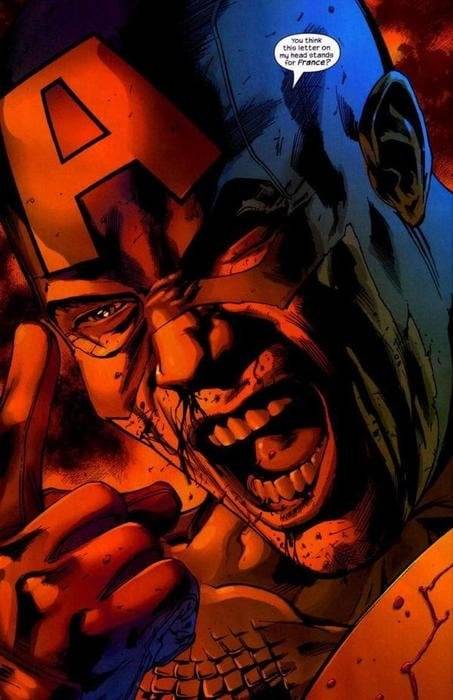
There is a comic book precedent for this military take on Earth's Mightiest Heroes in the form of The Ultimates, a 2002 series by the British team of writer Mark Millar and artist Bryan Hitch. The Ultimates ,however, was satire. Millar was an unreformed lefty of the old school – someone who has boasted of voting Brexit for left-wing reasons, someone who once appeared on Russia Today as a guest of George Galloway. The Ultimates took swings at the gung ho jingoism of post 9/11 America. Captain America's “Surrender!!?? You think this letter on my head stands for France?“ is not supposed to be a badass one-liner, but rather a parody of the kind of things US media outlets were saying as Jacques Chirac proved less keen than Tony Blair to follow George Bush in bringing gunboat diplomacy to the Middle East. As Millar commentated at the time:
“The Ultimates is completely different because it's a character-driven piece and (something only a few people have noticed) my attempt as a left-wing writer to tell stories about an essentially right-wing concept and cast. It's very much the Anti-Authority, if you will. Captain America and so on are fully-paid members of the US military machine and this means a very different book and approach from a gang of slightly arrogrant, left-wing, superhuman utopians like The Authority ".
Wildstorm Comics' The Authority, which both Millar and Hitch worked on (although not together), was a precursor to Ultimates, featuring a team of similarly “any means necessary” heroes, albeit with a left-wing bent. The Ultimates does have something of The Authority’s utopian streak; Nick Fury and Tony Stark genuinely want to make the world a better place for everyone. It’s very idealistic – what if the head of the military and the biggest tech billionaire actually had the people’s best interests at heart? – and arguably closer to true superhero ethos (basically “with great power there must also come great responsibility “) than those characters more pragmatic MCU equivalents.
Yet, as Millar's one time writing partner Grant Morrison (who actually ghost-wrote at least one issue of The Authority under Miller’s name) observed in Morrison’s major nonfiction work, Supergods, the likes of The Authority, The Ultimates and, by extension, the MCU represent a “capitulation” to the view “that it was really only force and violence that got things done and not patient diplomacy, and that only soldiers and very rich people had the world figured out”. If the MCU is realistic, then it’s a sad indictment of the real world where the heroes are the ones with the best tech, the best guns and no compunction about using them.
Regardless of intent, The Ultimates left a door at Marvel’s “House of Ideas” just enough ajar to allow a malign notion to creep in: “These soldier superheroes are pretty cool. What If they were like that all the time? Wouldn’t they be more popular then”?
Certainly the navy SEAL aesthetic Bryan Hitch brought to the costumes (replacing the colourful tights and capes with pouches, straps and body armour) was soon adopted by superhero tv and film productions even pre-MCU. In fact, Hawkeye's journey from carny to commando mirrors the changes in superhero attire. Most famously, Superman's appearance with the red “overpants” derives from that of circus strongmen, but seeing any photography of early to mid 20th century carnival and circus performers makes it clear the early superhero creators had them in mind when they first put pencil to paper.
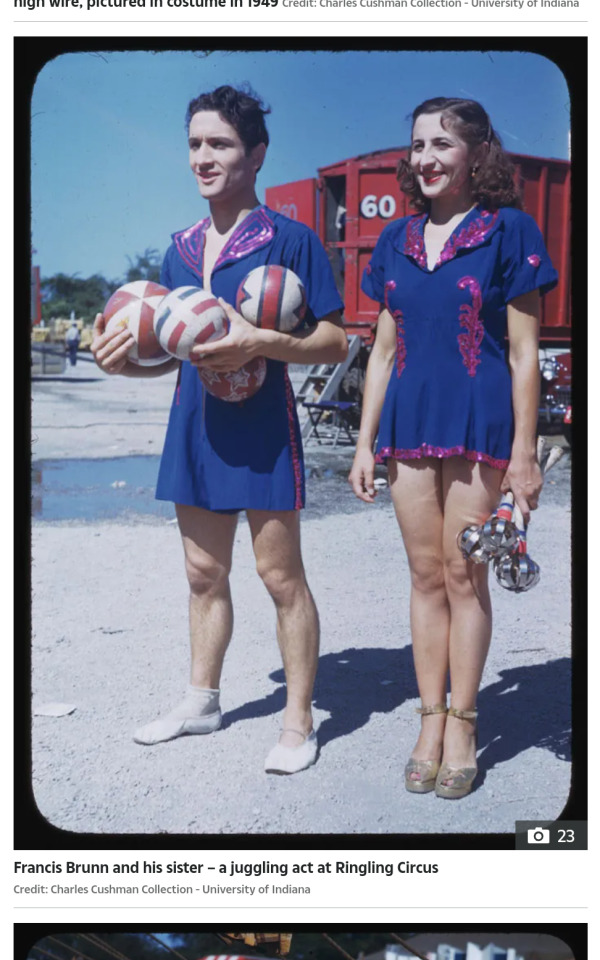
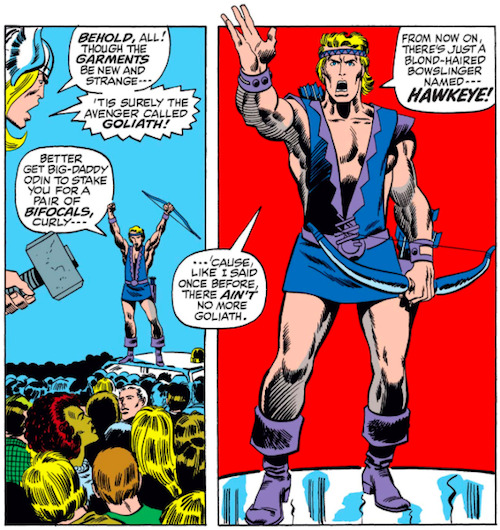
In an interview (found in Marvel Spotlight: Captain America, published in 2009) Hitch related how he showed an initial Ultimates drawing of Captain America with a machine gun to Grant Morrison, which Morrison then “described as the most obscene Captain America image [they’d] ever seen”. (NB: Morrison has since adopted gender neutral pronouns). Perhaps Morrison said this with glee, in on the joke with their friends, but in the years since, Cap with a gun became a common sight, even in family-friendly movies (where it was divorced from the irony of The Ultimates).
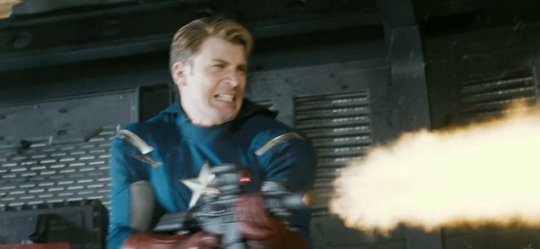
By a 2015 interview, Morrison lamented the fact that “the Avengers work for the government, and it's been like that since Mark [Millar] did The Ultimates” and said they were “bored with the idea that the best superheroes can represent is some aggressive version of the military. [...] They're supposed to be champions of the oppressed, they help ordinary people, they make things better for people. They don't prop up our grotesque, doddering culture of war and aggression”.
That same year Morrison introduced a new comic book superteam in the pages of The Multiversity. Pointedly the text likens this group, named “Justice Incarnate”, to a “cosmic neighbourhood watch” rather than any formal military or law-enforcement institution.
Millar himself reunited with his Authority collaborator Frank Quitely to create the comic Jupiter’s Legacy, which comes across in part as an apology for The Ultimates and all it begat. It concludes with the protagonists, Chloe Sampson and Eddie "Hutch" Hutchence taking up superhero mantles and promising not to make the moral compromises of their predecessors:
“No more bowing to authority and insitutions. No more deference to people in power”.
“There's a dignity in public service we mistook for old-fashioned, and a humility in having a secret identity, living among the people we protect.“
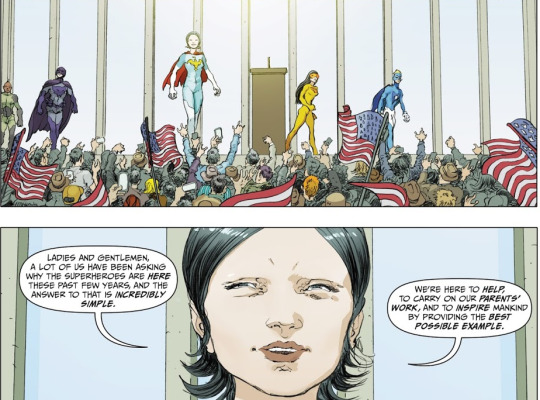
The Avengers, Marvel’s breakthrough billion dollar box office 2012 movie, by contrast, concludes with Iron Man dropping a nuclear bomb on the “Chitari”, an invading alien army and it seems likely this influenced Morrison’s comments on modern superhero stories.
In Supergods, Morrison
describes their childhood dread of nuclear weapons. The child of “ban the bomb” activists, the “gruesome hand-drawn images of how the world might look after a spirited thermonuclear missile exchange” which illustrated their parents anti-nuclear literature struck terror into the young Morrison. Therefore they seized upon superheroes as being an idea powerful enough to counteract – and overcome – the idea of the bomb.
“It’s not that I needed Superman to be “real,” I just needed him to be more real than the Idea of the Bomb that ravaged my dreams”.
Within the narrative of the movie, Iron Man takes the only option available to him to save New York. Destroying thousands of alien lives to save thousands of human ones. But The Avengers isn’t a documentary; the scriptwriters could have written a satisfying denouement which didn’t involve mass murder. They could at least have included some words of regret by the heroes over what it took to win, acknowledging that killing is not the ideal solution. Instead the Avengers trade banter and eat shawarma, collective conscious clear.
There is a moment in another Grant Morrison work, Final Crisis, which always brings the MCU to mind. In Final Crisis #3, drawn by JG Jones, (published in 2008, the same year the MCU began) “evil gods” from a higher plain of existence have been reincarnated on Earth. In order for the Justice League to counter this threat, a “draft for Superheroes” is implemented. Green Arrow (a Batman-a-like character who was subsequently reinvented to embody the countercultural sentiment of the late 1960s and has since served as the social conscious of the superhero set) responds to receiving his draft notice thusly:
“If anybody falls for this authoritarian, militaristic crap, it’ll prove I’m absolutely right about absolutely everything!... “
Cue the next page, where the drafted heroes have gathered en mass (including Green Arrow, impotently shaking his fist.)
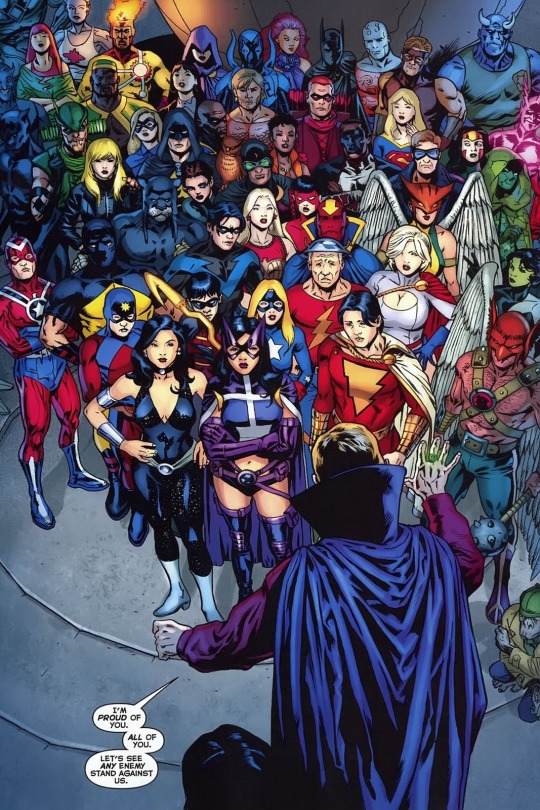
Such an assemblage of characters in usually a triumphant moment in a summer "event" story, but here is framed as a sign that evil already has it’s hooks into reality. This world has fallen to the darkness and the superheroes who inhabit it are too morally compromised to realise it.
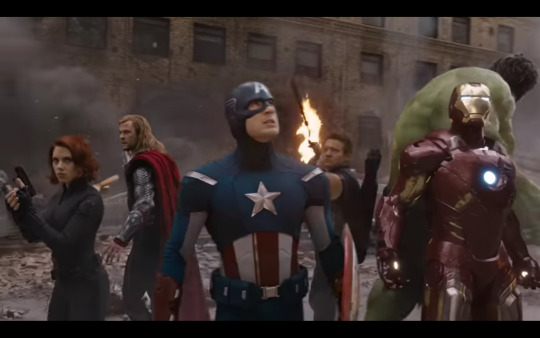
#the marvels#mcu#the avengers#grant morrison#mark millar#bryan hitch#the ultimates#marvel#dc comics#the authority#opinion#long form#comics#movies#superheroes#superhero#spider man#mcu critical#marvel critical#mcu criticism
54 notes
·
View notes
Text
Having read both for comparison, I'm now realizing that Huck by Mark Millar reads like a deliberate inversion of what he did with Kick-Ass- instead of a comically-inept normal guy attempting to become a costumed superhero to pursue fame and status, you've got a random mechanic with the classic forties superman powerset who blocks out a certain amount of each day to run around doing good deeds for people, pointedly uncomfortable with the spotlight, never adopting a costume or codename. This was one of the works of his that I described as cloyingly optimistic, and rife with many of the usual eye-roll-inducing millarisms, but I maintain a certain affection for it.
18 notes
·
View notes
Text

45 notes
·
View notes
Text

#the scungle#cassie sandsmark#cassandra sandsmark#wonder girl#daily cassie sandsmark#mark millar#georges jeanty#rick taylor#wonder woman vol. 2
76 notes
·
View notes
Text
No exactamente

Guionista: Mark Millar
Dibujante: Greg Land
Publicación original: Ultimate Fantastic Four Vol 1 #22 (2005)
#cómics#comic book panels#marvel comics#marvel zombies#ultimate fantastic four#fantastic four#4 fantásticos#mark millar#greg land
39 notes
·
View notes
Text
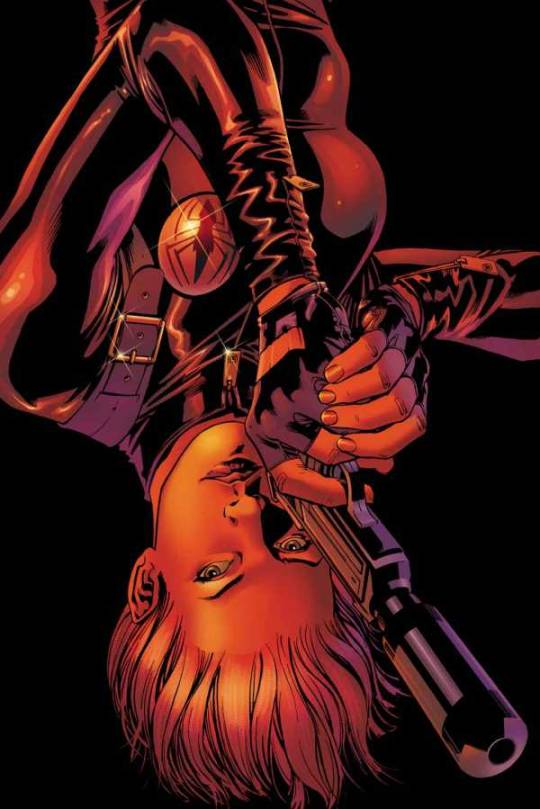
The Ultimates 7 (2002) by Mark Millar & Bryan Hitch
Cover: Bryan Hitch
24 notes
·
View notes
Text

The Ambassadors #6
39 notes
·
View notes
Text

The Ultimates (2002) #12: "Persons of Mass Destruction"
Writer: Mark Millar
Pencils: Bryan Hitch
Inks: Paul Neary
Colors: Paul Mounts
Letters: Chris Eliopolous
#Marvel Comics#Ultimate Marvel#Avengers#Ultimates#Ultimate Universe#Captain America#Mark Millar#Bryan Hitch#Paul Neary#Paul Mounts#Chris Eliopolous#2003#Fleetway Sonic Contributors
74 notes
·
View notes